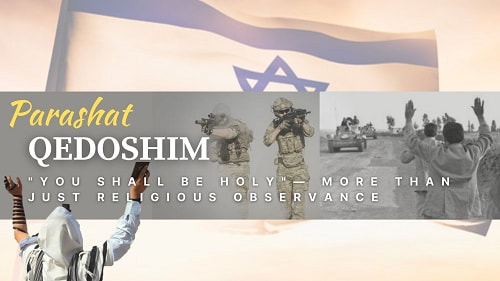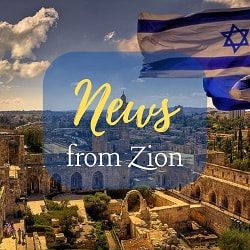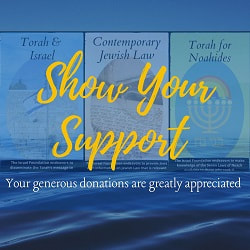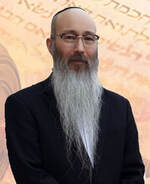|
By: HaRav Menashe Sasson Reporting from Jerusalem, Israel Published in the U.S.A. Parashat Qedoshim begins: “And the Lord spoke to Moshe saying, Speak to all the congregation of the children of Yisra’el, and say to them, “You shall be holy, for I the Lord your God am holy.” Vayyiqra 19:1-2. This command, of course, begs the question, “What does it mean to be ‘holy’”? At the close of Parashat Qedoshim, HaShem provides some insight into what it means to be “holy.” “And you shall be holy to Me, for I the Lord am holy, and have separated you from the peoples, that you should be mine.” Vayyiqra 20:26. In other words, what HaShem is telling us is that, in this context, to be “holy” means to be “separate.” Just as HaShem is holy/separate from mankind, He separated the Jewish people from the other nations for the purpose of being HaShem’s chosen people. The concept of holiness/separateness is an integral part of Torah and Halakha (Jewish Law). For example, Parashat Qedoshim mentions the subject of kashrut [קשרות] (Jewish dietary laws), a word which is derived from the root-word “kosher” [כשר], which means fit for a particular purpose. In the sentence which immediately precedes the statement that HaShem has “separated [the Jewish people] from the [other nations of the world], Vayyiqra 20:26, HaShem commands that the Jewish people “distinguish between clean beasts and unclean, and between unclean birds and clean; and you [the Jewish people] shall not make your souls abominable by beast, or by bird, or by any manner of living thing that creeps on the ground, which I have separated from you as unclean,” Vayyiqra 20:25. Other examples of Jewish holiness/separateness include brit milah [ברית מילה] (circumcision). “And the Lord spoke to Moshe saying, Speak to the children of Yisra’el, saying, If a woman have conceived seed, and born a male child . . . on the eighth day the flesh of his foreskin shall be circumcised.” Vayyiqra 12:1-4. Then there is the prohibition on intermarriage, which, not coincidentally, is found in a somewhat lengthy paragraph of the Torah which addresses the subject of expelling from Eretz Yisra’el those who claim a right to the Land which is superior to that of the Jewish people:
Debarim 7:1-11 (emphasis added). Thus, we see that the command “You shall be holy, for I the Lord your God am holy,” Vayyiqra 19:1-2, means not only that the Jewish people must be separate from the other nations and peoples of the world in the context of the food that they eat, the exterior appearance of male genitalia, and with respect to whom a Jew may marry (and, by extension, with whom a Jew may bear children), but also with respect to whom the Jewish people may permit to reside in Eretz Yisra’el (the Land of Israel). In 1948, after almost 2,000 years of exile from the Eretz Yisra’el, the Jewish people reestablished sovereignty over a portion of the Land. Following hard-fought battles during the 1948 War of Independence, Arabs fled from west Jerusalem, Haifa, and Jaffa, as well as in Ramle and Lydda, two towns located between Jerusalem and Tel Aviv. However, the then-new Israeli government, beginning a pattern that has persisted to this day, lost its resolve and failed to expel the Arabs from Nazareth and the rest of the Galilee and allowed other Arabs to return to Israel under the guise of “family reunification.” The 1949 Armistice Agreements (aka: The Rhodes Agreement) brought an additional 30,000 Arabs into Israel. Making matters worse, although some 700,000 Jews from Arab countries immigrated to Israel in the years immediately following 1948, leaving behind property and other valuables in their former Arab countries of residence for which they were never compensated, Israel “snatched defeat from the jaws of victory” by failing to complete the population transfer by sending the Arabs who remained in Israel to neighboring Arab lands. The Jewish State (aka: the Israeli government), having failed in 1948 to fulfill its Torah obligation, to wit: “When the Lord thy God shall bring thee to the land into which thou goest to possess it, and shall cast out many nations before thee. . . ,” Debarim 7:1, was given a second chance in 1967, when HaShem granted the Jewish people miraculous success in The Six-Day War. Following the war, the Jewish State had control over The Old City, in Jerusalem; Judea and the surrounding hills; Bethlehem; Hebron; Samaria, including Shechem, Bet El, Shilo, Jericho, Gilgal; and Gaza. In the aftermath of The Six-Day War, white (surrender) flags flew from almost every Arab window in Hebron, as the Arab residents of that town, likely remembering the unprovoked 1929 massacre by Arabs of 67 Jews, and knowing that a 1929-type massacre of Jews would probably have reoccurred had the Arabs won The Six-Day War, feared Jewish retribution. Not only did the Jewish State not compel the defeated Arabs of Hebron to relocate to an Arab county following The Six-Day War, the Jewish Defense Minister assured the Arabs that Me’arat HaMakhpela [מערת המכפלה] (the Cave of Makhpelah), where Abraham and Sara, Yizhaq and Rivqa, and Ya’akob and Le’a are buried, would remain under Muslim control. Making matters worse, not only did the Jewish State not compel Arabs to relocate to Arab countries, it actively prevented them from doing so. When thousands of Arabs fled eastward, toward Jordan, the Israeli Defense Minister ordered Jewish troops to intercept them and return them to their Israeli villages, presumably for the purpose of preempting objections from Israel’s detractors. The Jewish State’s timid, secular-socialist strategy for preventing terrorism has, as history has demonstrated time and again, been a complete and abject failure. Perhaps a new strategy, a Jewish strategy, that is – a Torah strategy – is in order. If the Jewish people are to dwell safely and securely in their Land, the Jewish State must heed the command of Parashat Qedoshim to be holy, that is, to be separate from the other nations. שבת שלום Shabbat Shalom! Copyright © The Israel Foundation. All Rights Reserved.
0 Comments
Your comment will be posted after it is approved.
Leave a Reply. |
THE ISRAEL FOUNDATION





